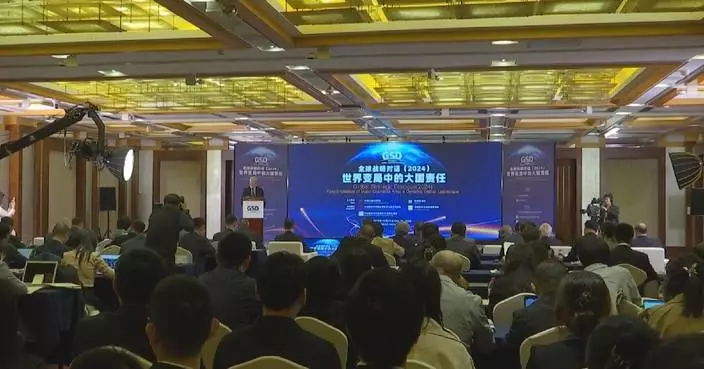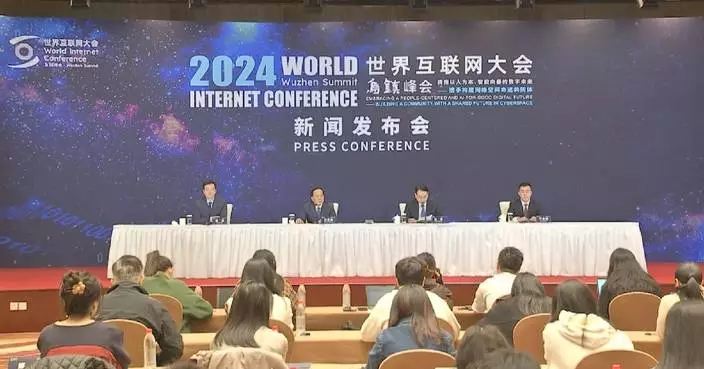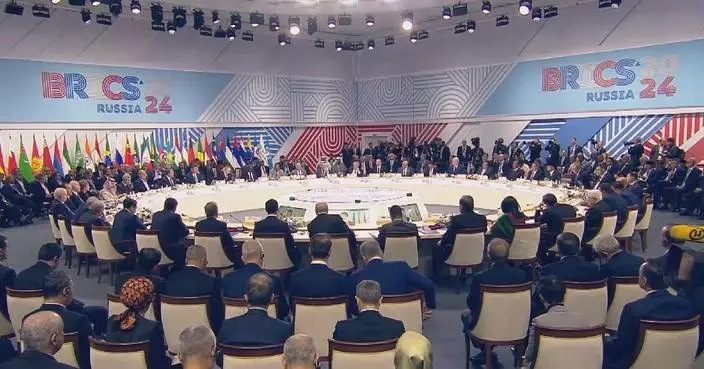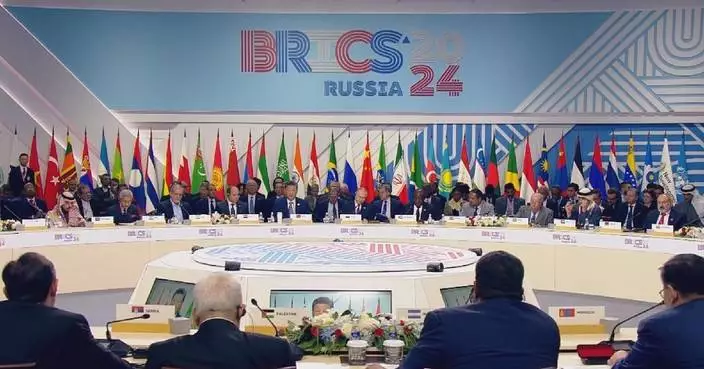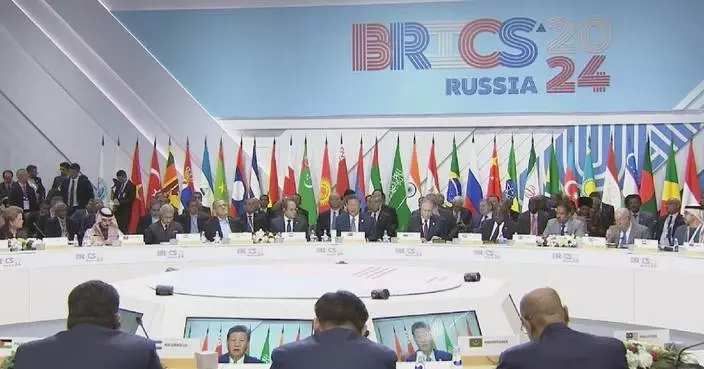Chinese President Xi Jinping was in Kazan, the capital of Russia's Republic of Tatarstan, for the 16th BRICS Summit from Tuesday to Thursday, where he also had in-depth exchanges with world leaders on BRICS cooperation, bilateral relations and the current international situation, demonstrating the high-quality development of greater BRICS cooperation.
Xi flew in on Tuesday to attend the event at the invitation of Russian President Vladimir Putin.
During a small-group meeting on Wednesday, Xi pointed out that the enlargement of BRICS is a major milestone in its development, and a landmark event in the evolution of the international situation.
"It is for our shared pursuit and for the overarching trend of peace and development that we BRICS countries have come together. We must work together to build BRICS into a primary channel for strengthening solidarity and cooperation among Global South nations and a vanguard for advancing global governance reform," Xi said.
He stressed that the more turbulent the world is, the more BRICS countries should uphold the banner of peace, development and win-win cooperation, refining the essence of BRICS and demonstrating its strength.
BRICS countries should raise the voice of peace, advocating a new path to security that features dialogue over confrontation and partnership over alliance, Xi said.
The Chinese president then attended a large-group meeting, where he made important statements on the future development of BRICS and put forward five suggestions.
Xi stressed that, as the world enters a new period defined by turbulence and transformation, pivotal choices lies ahead for BRICS members: allow the world to descend into the abyss of disorder and chaos, or steer it back on the path of peace and development?
"The more tumultuous our times become, the more we must stand firm at the forefront, exhibiting tenacity, demonstrating the audacity to pioneer and displaying the wisdom to adapt, so as to open a new horizon in the high-quality development of greater BRICS cooperation," Xi said.
He called on the BRICS members to: build a BRICS committed to peace and act as defenders of common security; build a BRICS committed to innovation and act as pioneers of high-quality development; build a BRICS committed to green development and act as promoters of sustainable development; build a BRICS committed to justice and act as forerunners in reforming global governance, and build a BRICS committed to closer people-to-people exchanges and that advocates for harmonious coexistence among all civilizations.
During his time in Kazan, Xi had in-depth bilateral exchanges with world leaders, including general secretary of the Lao People's Revolutionary Party Central Committee and Lao president Thongloun Sisoulith, Indian Prime Minister Narendra Modi, Iranian President Masoud Pezeshkian and Egyptian President Abdel Fattah El-Sisi.
During the "BRICS Plus" leaders' dialogue held on Thursday, Xi called on "BRICS Plus" countries to strive for common security, common development and harmony among civilizations.
Noting that the collective rise of the Global South is a distinctive feature of the great transformation across the world, Xi said that Global South countries marching together toward modernization is monumental in world history and unprecedented in human civilization.
However, he pointed out that peace and development still face severe challenges and the road to prosperity for the Global South will not be straight forward, urging "BRICS Plus" countries to use their collective wisdom and strength and stand up to their responsibilities in building a community with a shared future for mankind.
Xi said that "BRICS Plus" countries should uphold peace and strive for common security, reinvigorate development and strive for common prosperity, and together promote the development of all civilizations and strive for harmony among them.
"No matter how the international landscape evolves, we in China will always keep the Global South in our heart, and maintain our roots in the Global South. We support more Global South countries in joining the cause of BRICS, so that we can combine the great strength of the Global South to build together a community with a shared future for mankind," Xi said.
Xi returned to Beijing on Thursday midnight.
Prior to his departure, the head of the Republic of Tatarstan Rustam Minnikhanov and senior officials from the Russian Foreign Ministry gathered at the Kazan International Airport to see off the Chinese president.
The event is the first-ever summit of an expanded BRICS, which began with Brazil, Russia, India, China and South Africa, and has now evolved into an influential international cooperation mechanism with an expanded membership.
Besides the countries that officially joined the BRICS family on Jan 1, 2024, over 30 countries including Thailand, Malaysia, Türkiye and Azerbaijan have either formally applied to join or expressed interest in membership.
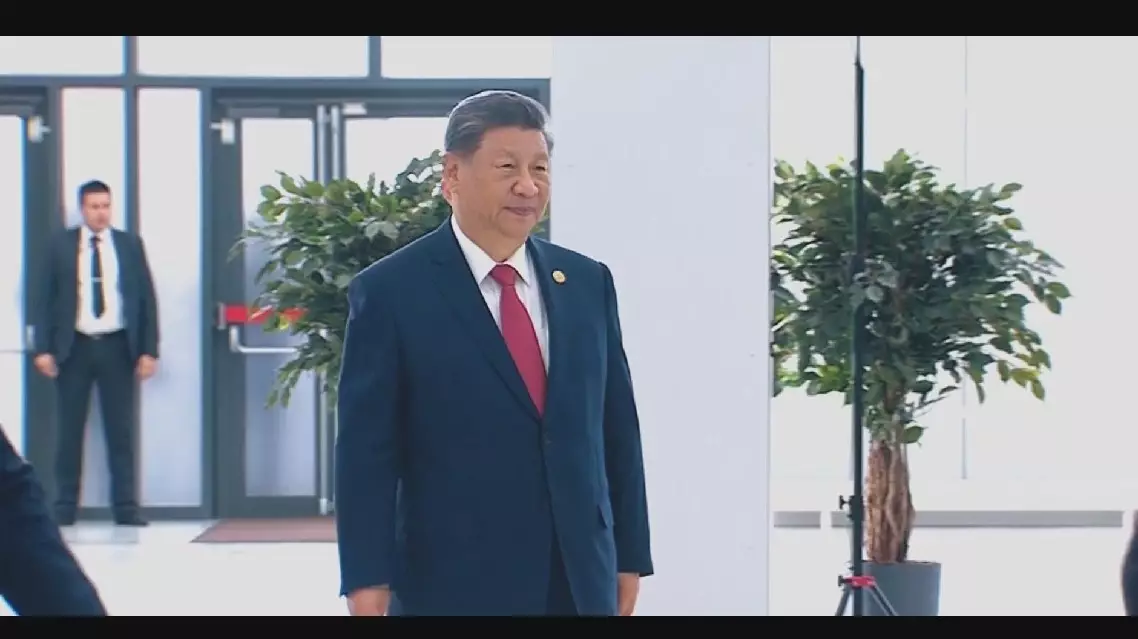
Xi's time in Kazan highlights greater BRICS cooperation




